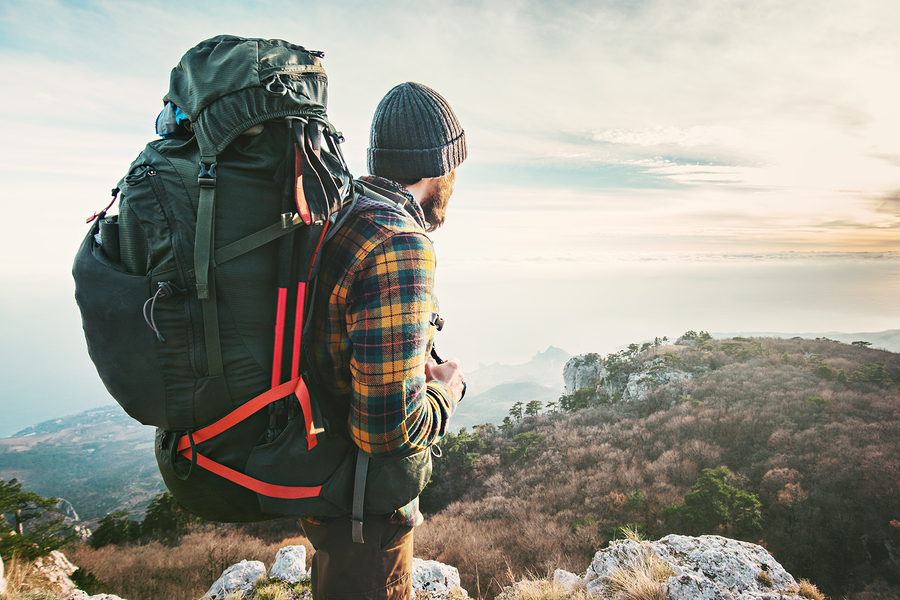Hiking Shouldn’t Hurt – How to take care of your body on the trail
We’re in the peak of summer in Bend, Oregon and the hiking trails in our region are the place to be. Hiking and backpacking are wonderful ways to explore surrounding lands and see areas you can’t access any other way. Hiking is also a great way to get cardio exercise and keep your dog healthy and happy, too. To keep yourself injury-free however, there are some things you should double check before leaving the trailhead. Hiking shouldn’t hurt. And a sore back or neck can put a serious damper on a glorious day on the trail.
Check your backpack.
Your backpack weight and size depends on the distance of your trip. But no matter the size or duration of your time on the trail, a poorly fitting backpack can cause big problems in your neck, back and hips. You’ll first want to get fitted. One of the biggest mistakes people make when buying a backpack is not getting it properly fitted to their torso. Also a hip belt that is too big or too small can cause major issues. Take your pack to a trusted local store to check your fitting.
Wear supportive shoes.
We can’t stress this point enough. Your feet are your foundation for any hiking trip. If your feet are not supported correctly, your foundation can crack and cause problems throughout your entire body. When buying hiking shoes, the same rules apply as when buying running shoes. Most important? Get fitted properly at a local specialty store.
Pay attention to your posture and gait.
You know that feeling when you first hit the trail? You’re light and fancy-free and moving with purpose. It might be early in the day when the sun is low and temperatures are perfectly cool. You’re hydrated and loving life. Fast-forward a few hours and your tired legs may force your body alignment to change without you even noticing. Shoulders sag, your core loosens, and before you know it, your neck and shoulders seem to be carrying all the weight. This is not a good scenario for your upper body especially. How to solve this problem? Take a moment every 30 minutes or so to check in and return to your normal posture and gait. One quick action you can take: stop and engage your core. The strongest part of your body is also the most involved in walking movement.
Pack light.
There’s a reason we worry about kids and overstuffed backpacks. Too much weight can cause their little bodies a lot of pain. The same holds true for adult backpacks. Pack as lightly as possible. In general, put your heaviest gear closest to your back and centered (food and water), and your lightest gear away from your back and centered (extra clothing, backpacking tent).
Don’t overdo it.
There are so many miles to explore. You don’t have to travel them all in one summer. If you are going with a group, be sure to pace yourself to your own level of skill and exertion. Hiking poles are a great tool to invest in and can be very helpful if you like to pace yourself to a comfortable rhythm.
Do you have back or neck pain associated with summer hiking? Total Body Chiropractic & Massage in Bend, Oregon specializes in chiropractic care, massage, and the Graston soft-tissue release treatment. We can help you feel better and make a plan for more healthful and injury-free hiking experiences.

